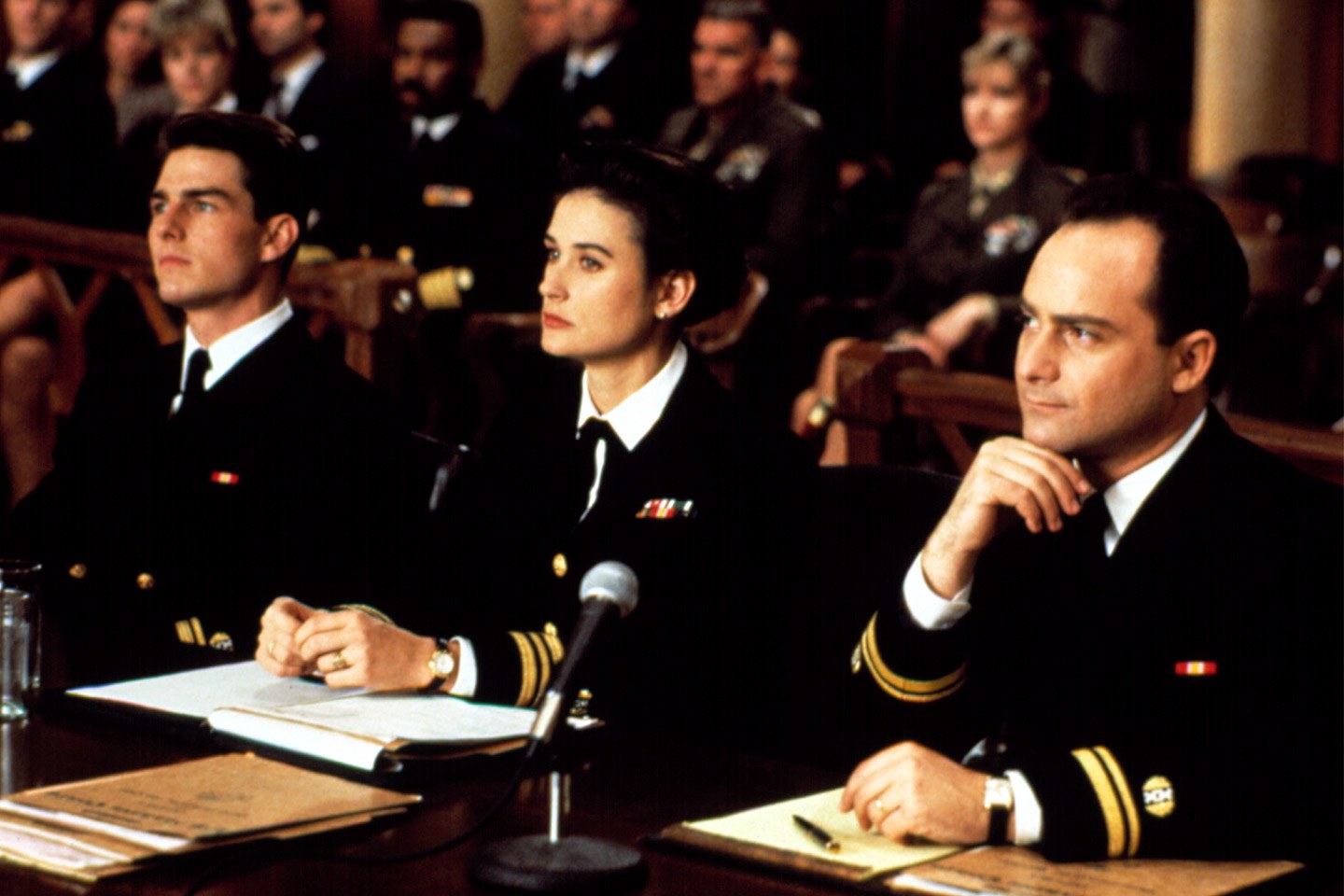Review: A Few Good Men (1992)
Truth be told, I had never seen A Few Good Men until the other night. I knew the strong reputation of this military courtroom drama, though, and of course I knew the famous scene where Jack Nicholson shouts, “You can’t handle the truth!”
But what is the truth that Tom Cruise’s cocky JAG lawyer Lt. Daniel Kaffee is told he can’t handle? A Pvt. Santiago is killed during a “code red”—off the record punishment by fellow enlisted men. Kaffee is assigned to defend the two U.S. Marines court-martialed for the incident, and is aided by the determined and idealistic Lt. Cdr. JoAnne Galloway (Demi Moore). Nicholson’s intimidating Col. Nathan R. Jessup, commander of the Marines at Guantanamo Bay Naval Base, where the incident took place, believes that Kaffee and his kind like to ignore the harsh realities of the world. He believes ordinary people like to forget both the forces that threaten their freedom, and, more importantly, the harsh methods necessary to protect and maintain that freedom.
Is this the truth? Or is Jessup just some ruthless tyrant holding to a sick code draped in nice words like honour and loyalty? The success of the film, written by star screenwriter Aaron Sorkin from his play of the same name (his first screenplay nonetheless), is that it allows tensions to exist between the military code and civilian justice. I felt bad for Pvt. Santiago, who couldn’t cut it but was unjustly punished. On the other hand, the two assailants were “just following orders.” I know the phrase is ominous in moral discussions, bringing to mind the excuses of guards in Nazi death camps, but in this film, the two Marines seem like they were genuinely compelled to follow orders. I believe they had little choice. Undereducated and knowing little outside the military, the Marine Corps is their life, and its code determines their behaviour. And the code is all about following orders. As Galloway warns early in the film: “The Marines at Gitmo are fanatical.” “Fanatical about what?” Kaffee’s companion asks. “About being Marines.” At times, the film recalls Kubrick’s Full Metal Jacket in drawing disturbing comparisons between military drilling (what we do) and brainwashing (what bad guys like North Korea do).
What of Jessup though? Surely he, at the top of the hierarchy, can be held responsible. If we sense his ambitions and lurking violence, we also sense his fanatical fidelity to a code of honour, which he believes is absolutely right.
The film has acquired new potency in our age of the War on Terror, following the incidents of cruelty at Abu Ghraib and frequents debates about torture at “Gitmo” (a place probably unfamiliar in the early 1990s) on the evening news. In fact, Jessup’s attitude and worldview, a sort of sinister pragmatism, is fairly perceptible in some contemporary Republicans.
So who are the few good men? The Marines who regret Santiago’s death while they remain loyal to the code? The ambitious yet decent lawyers? Either way, when we think of the phrase, “a few good men,” being applied to the vast military and judicial systems of the US, it’s not reassuring.
8 out of 10
A Few Good Men (USA, 1992)
Directed by Rob Reiner; screenplay by Aaron Sorkin from his play; starring Tom Cruise, Jack Nicholson, Demi Moore, Kevin Bacon, and Kiefer Sutherland.
